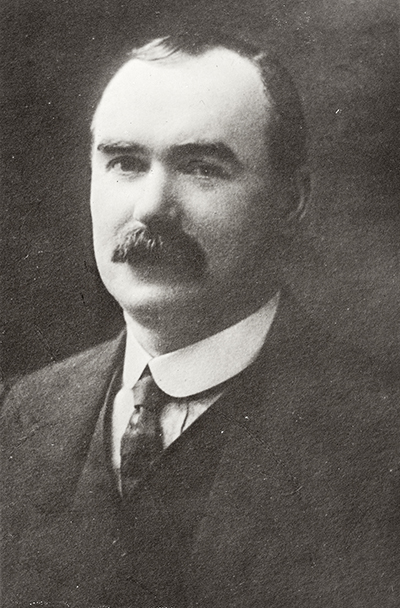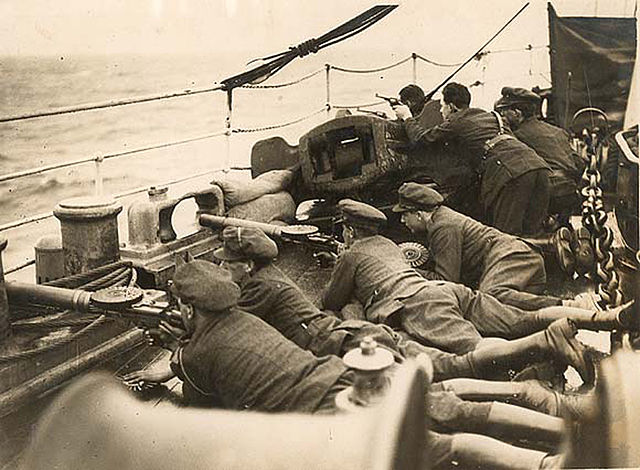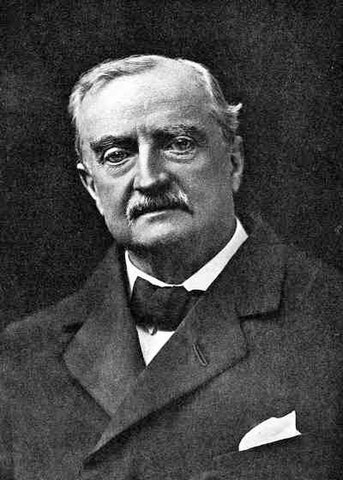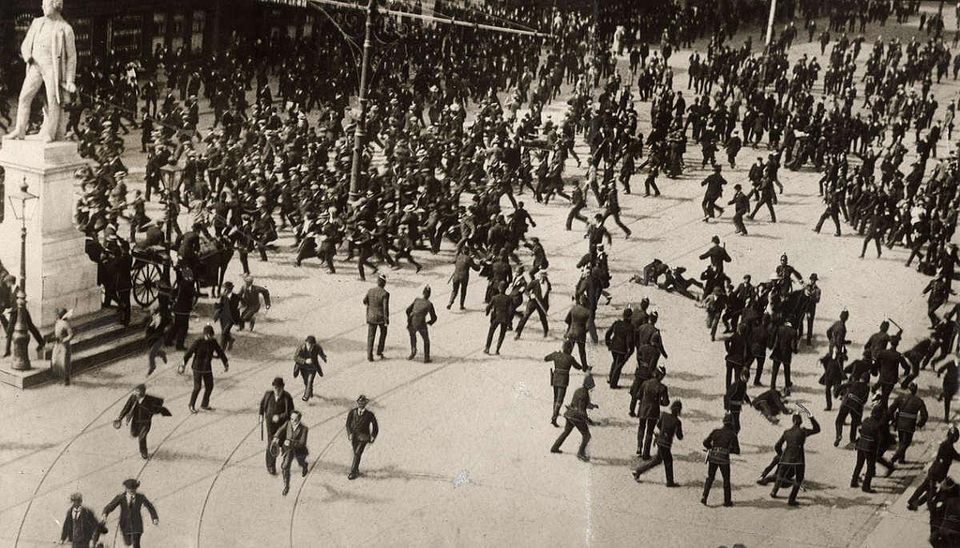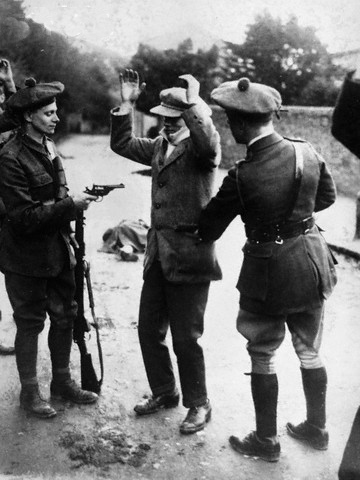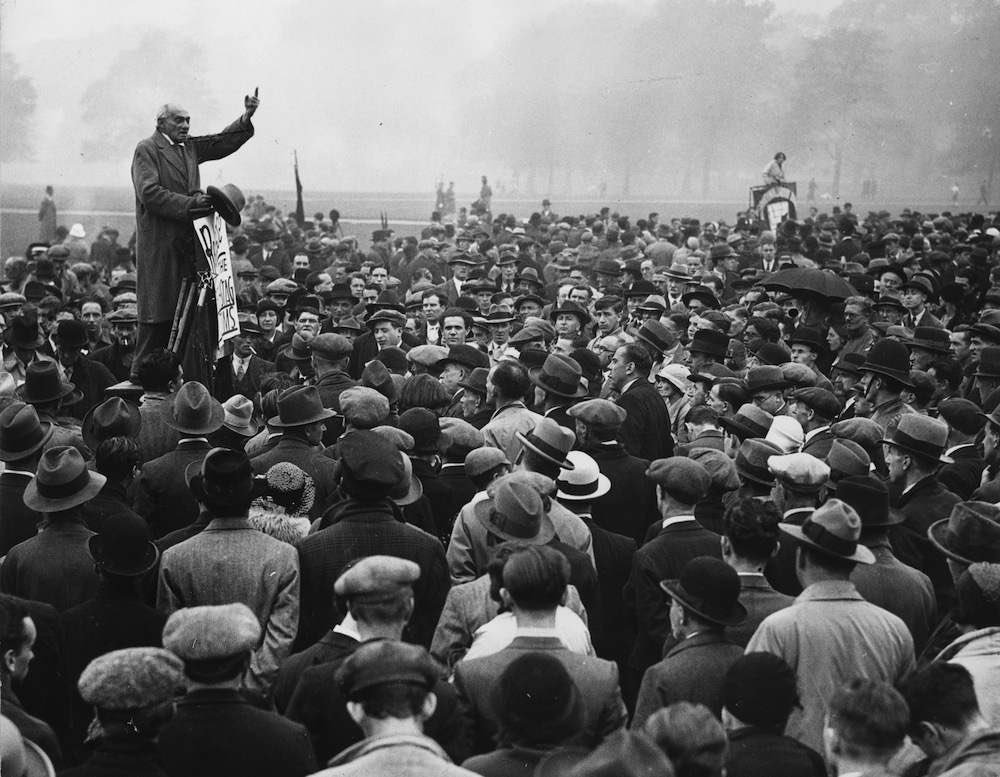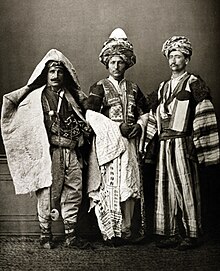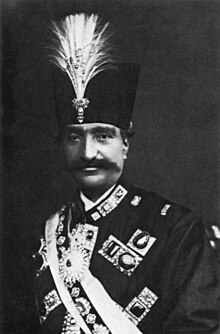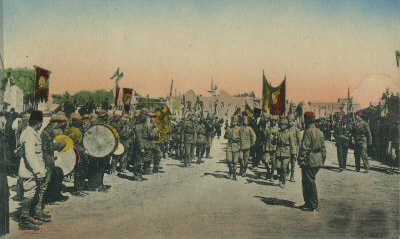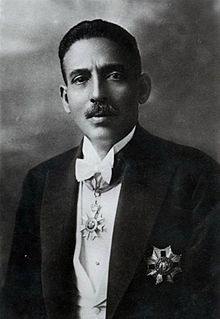It's time for the next part of the story of Iraq. I'll probably write more on the Wars of Arabian Unification at some point.
Iraq: A History
Part Three: Abdullah II
The reign of King Abdullah II was in a number of ways a continuation of the reign of his father King Abdullah I, as Abdullah II largely sought to continue and expanded his father’s reforms and to uphold his legacy. In regards to other events, during the first years of the reign of King Abdullah II, the Iraqi economy began to make more and more inroads into markets of numerous European nations with trade routes from Bagdad to going to Jerusalem and then to other cities such as Latakia, Tartus, Beirut, Haifa and Gaza and then to the other cities of the Empire and her sphere. During the 1880s and 1890, Iraqi goods and art began to become somewhat common, along with other Middle Eastern goods and arts, in large European open-air markets, the most popular of which were numerous different kinds of artistic items, from Islamic religious art, potteries, decorative weapons, tapestries, among others. Markets specifically for the vending and purchase of Iraqi and other Middle Eastern goods opened up in Paris, Madrid, Vienna, Budapest and Prague, among other major cities in the Europan sphere, such as Naples, Milan, Lucerne, Munich and Lisbon. Throughout the late nineteenth century and the early twentieth century, Middle Eastern and Islamic art became immensely popular throughout the Empire of Europa and its associated client states, largely as a result of the trade routes and other mercantile connections that existed between Iraq and Europa.
One of the first official acts of Abdullah II as King of Iraq was establishing the office of Grand Vizier, a title from the Ottoman Empire and which meant basically the same as a Prime Minister, but the Grand Vizier of Iraq had much less power than the Prime Ministers of European nations and was more of a figurehead. Six years later, in 1886, a Parliament of Iraq was established, but all of its members were elected by only members of the upper classes and nobility of Iraq. The first Grand Vizier of Iraq was Abd Al-Rahman Al-Gillani, a prominent merchant and the former mayor of Baghdad.
Abd Al-Rahman Al-Gillani
The reign of King Abdullah II also saw a number of other reforms and related developments. In an effort to promote more learning and historical research within Iraq, during the 1880s, 1890s and 1900s, Abdullah II invited numerous archaeologists, mostly from European nations, to visit Iraq and to study the Ancient Civilizations of Mesopotamia and the Fertile Crescent. One downside to these invitations and archaeological expeditions was that most of the artifacts extracted from the lands of Iraq ended up in foreign museums in Paris, London, Madrid, Lisbon, Berlin, Munich, Milan, Naples, Stockholm, Copenhagen, among other cities. In 1887, the Iraqi Royal Navy was founded soon after the purchase by the Iraqi government of two older Ironclads from the navy of the Empire of Europa, these two Ironclads having been the NRE (Navire royal européen) Michel Ney and the NRE Chapmagne. After the formation of the Iraqi Royal Navy, the two ironclads were renamed the Bagdad and the Dawul Pasha, and a number of new ships were built from 1895 to 1899. Iraq only had a small coastline between the Persian Empire and the Emirate of Jabal Shammar, and as a result, only had a small navy that projected power within the Persian Gulf. Throughout the 1890s, Abdullah II ordered and organized the construction of a series of new roads leading from the major cities of Iraq to a number of small towns and villages in Iraq, thus greatly assisting the rural population to become more connected to the urban population, and also increasing the educational opportunities of the rural and peasant population of Iraq.
In regards to foreign policy, the major concern of the Kingdom of Iraq during the early reign of King Abdullah II was the behemoth next door: the Persian Empire under the Qajar Dynasty. For one thing, the Persian Empire, an up and coming regional power in the Middle East, was much larger than Iraq and could conquer the nation without that much of a challenge. Iraq also was a nation of both Sunni and Shia Muslims and Persia saw itself of as the unofficial protector of the Shias within Iraq, much to the annoyance of Abdullah II, who saw himself as the protector of all citizens of Iraq and even once stated that; “The people of this land are all one of one nation, Iraq, regardless of their religion, tribe or heritage.” As a result of the Kingdom of Iraq’s previous support of Kurdish nationalist rebellions in Turkey, throughout the 1890s and 1900s, a number of Kurdish, Arab and Azeri rebellions took place within the western regions of Persia. While these rebellions were a nuisance for Persia, they were not at all major problems and did not affect relations between Iraq and Persia. Iraq itself did not support nationalist rebellions within Persia, as they did not want to antagonize their much larger neighbor. In spite of these tensions, after the death of Shah Naser al-Din Shah Qajar in 1899, relations between Iraq and Persia began to gradually improve. During the 1900s and into the early 1910s, Iraq under King Abdullah II made numerous efforts to improve relations between Iraq and the Persian Empire under the new Shah Mozaffar ad-Din Shah Qajar, as Abdullah saw a good relationship with Persia as nessecary to the safety and security of Iraq. After months of negotiations, a non-aggression pact, known as the Iraqi-Persian Non-Aggression Pact, was signed between representatives of the two nations in Tehran on July 28, 1906.
Mozaffar ad-Din Shah Qajar (March 23, 1853-August 21, 1910)
In regards to other Arab nations, the Emirate of Nejd under the rule of the House of Saud was openly hostile towards the Kingdom of Iraq, with the Saudi Emir Abdul Aziz ibn Saud stating that the Kingdom of Iraq was, in his own words; “a decadent, pro-western illegitimate, pretend Arab state and puppet of the Frankish heathens.” The Kingdom of Iraq was also hostile towards the Saudi Emirate of Nejd, with King Abdullah viewing the Saudi kingdom as a dangerous and fanatical nation and their Wahhabist sect of Islam as nothing more than a fanatical and insane interpretation of the Islamic faith and both as a danger to the entire Middle Eastern region. Thus, the Kingdom of Iraq began to foster good relations with both the Emirate of Jabal Shamnar under the Rashidi dynasty and Abd al-Aziz ibn Mutib and the Kingdom of Hejaz under the Hashemite dynasty and Hussein bin Ali, Sharif of Mecca, which were the two principal rival kingdoms of the Saudi Emirate of Nejd.
Abd al-Aziz ibn Mutib (1870-1912)
Hussein bin Ali, Sharif of Mecca
Throughout the decade of the 1900s, the Emirate of Jabal Shammar conducted a series of wars and conquests against the other kingdoms of the Arabian Peninsula, all in an effort to unify the Arabian Peninsula under one kingdom. In May, 1909, the Emirate of Nejd was completely conquered by the armies of Jabal Shammar, with Ibn Saud being wounded in battle outside of Riyadh, after which his body was mutilated by Rashid soldiers, against the wishes of Emir Abd al-Aziz ibn Mutib, and then his body was dumped in an unmarked grave outside of the aforementioned city. Thus, the Saudi Emirate of Nejd would no longer be a threat to the safety and more moderate Islam of Iraq. Shortly afterwards, the Kingdom of Hejaz was annexed into Jabal Shammar, with Hussein bin Ali allowed to become the Sharif of Mecca and the new Caliph of Islam, a title that had been hotly contested over since the fall of the Ottoman Empire.
One of the only known photogrpahs of Abdul Aziz ibn Saud (1875-1909), taken around 1905 by Spanish explorer and writer Jose Saavedra Figueroa.
By 1910, Jabal Shammar had unified all of the disparate and warring Arab kingdoms of the Arabian Peninsula, aside from the Trucial Emirates, Oman and the Yemeni kingdoms which had gradually fell under the control of the Persian Empire, much to the chagrin of Jabal Shammar, which reformed itself as the Kingdom of Arabia. While some of the Emir’s advisers wanted for the new Kingdom of Arabia to take control over the Kingdom of Iraq, the Emir himself strongly advised against this, as he rightfully saw the Kingdom of Iraq as an potential ally against either Europan, Russian, Turkish or Persian aggression.
Flag of the Kingdom of Arabia
At the beginning of the twentieth century, a new and revolutionary ideology was being formulated within the borders of the Kingdom of Iraq, and this ideology was known as Pan-Arabism, and the founder of this ideology was Nadir Abdulrashid. Born in Baghdad 1867, Nadir was educated at the New University of Baghdad from 1885 to 1890, where he studied the fields of history, Islamic theology and political theory. After a long and eventful career as a lawyer, fiction writer and poet in Baghdad, Nadir Abdulrashid wrote published his magnum opus
The Status of the Arab World in Bagdad in 1903. The book was both a work of history and a political manifesto calling for the unification of Iraq and the kingdoms of the Arabian Peninsula into one democratic, modern and secular Arab Nation and Kingdom, an Arab nation that Abdulrashid stated should then take the fight to the empires of Europa and Persia, thus liberated all of the Arab peoples from imperialism and uniting them under one nation and one flag of the Pan-Arfab colors of white, black, green and red. After its initial publication, the tome was an immense success amongst the intellectual circles of Bagdad, and as a result the ideology of Pan-Arabism began to gradually grow in popularity in Iraq, as well as in Jabal Shammar/Arabia and further away in the Europan protectorate of Egypt. At the time, much of the Arab world was under the domination of foreign and non-Arab empires, such as the Europan Empire and the Persian Empire, with the only independent Arab nations were Iraq and the numerous warring kingdoms of the Arabian Peninsula which would eventually unify under the Rashid dynasty of Jabal Shammar. As such, it is no surprise why such a work of literature became popular to many across the Arab world.
As a result of the success of
The Status of the Arab World, a number of new Pan-Arabist clubs and political parties were established during the 1900s and 1910s and also during the reign of Abdallah II. In 1910, in a speech given publically from the Baghdad City Hall, Abdullah II publically announced that he was a devotee of the Pan-Arabist ideology stating that “While the Arab nations should become one nation, it is the destiny of the Arab nations to unite under one alliance for the enrichment of each and every member of the alliance.” In the aftermath of this speech, Abdullah II of Iraq began to increase and nurture diplomatic ties with the Kingdom of Arabia, hoping to one day establish an “Arab Alliance” between the kingdoms of Iraq and Arabia.
Thus, with Iraq having cordial diplomatic relations with the Persian Empire and the Kingdom of Arabia, and with nationalist sentiment brewing in the Europan Protectorate of Egypt, the stage was set for Iraq to become involved in the Great World War in 1913. While the eventual alliance between the three aforementioned nations failed to overthrow Europan hegemony in the region of the Levant, one of the most important legacies of Iraq’s involvement in the Great World War was the first introduction of democracy within the Kingdom of Iraq. Throughout 1913 and 1914, the elderly Abdullah II came to the conclusion that he could simply not do all of the things that he had to do to in order run the war effort for Iraq. As a result, he delegated much of his previous powers and duties to Abd al-Muhsin as-Sa'dun, the Grand Vizier of Iraq, a position that had existed since 1880 but which was still largely ceremonial.
After the war ended, Abdullah felt no need to regain the powers he had given to his Grand Vizier. Thus, the first inklings of democracy had arisen in Iraq and the region of the Middle East. Sadly, Abdullah II would never live to see his nation become a truly democratic nation, as he died on June 14, 1916 at the age of 79. His eldest son became King Mahmud I of Iraq.
